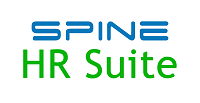Description

GCPAY

HR 360
Comprehensive Overview: GCPAY vs HR 360
As of my last update in October 2023, GCPAY and HR 360 are distinct products catering to different sectors, mainly infrastructure, construction, and human resources. Below is a comprehensive overview of each, including their primary functions, target markets, market share, user base, and key differentiating factors.
GCPAY Overview
a) Primary Functions and Target Markets
-
Primary Functions: GCPAY is a cloud-based application designed to streamline construction payment processes. It provides construction companies with tools for managing payment applications, compliance documentation, lien waivers, and subcontractor payments. The platform automates the distribution and approval of documents, ensuring accurate and timely payments.
-
Target Markets: GCPAY primarily targets the construction industry, including general contractors, subcontractors, and owners. It is particularly beneficial for larger construction projects where complex payment structures and compliance requirements are common.
b) Market Share and User Base
-
Market Share: As a niche product, GCPAY leads in offering specialized payment management solutions within the construction sector. Its market share is relatively small compared to broader financial software but significant within its niche, especially among medium to large construction firms.
-
User Base: GCPAY has a dedicated user base comprising primarily construction professionals involved in project management and finance. The user base is growing steadily as more construction companies adopt digital solutions for payment management.
c) Key Differentiating Factors
-
Industry Specialization: GCPAY is specifically designed for the construction industry, offering unique features pertinent to construction payment workflows.
-
Integration with Construction Management Software: It integrates effectively with various construction management and accounting software, providing seamless workflow automation.
-
Focus on Compliance: Emphasizes compliance management with tools for tracking lien waivers and document submissions, reducing legal and financial risks for contractors.
HR 360 Overview
a) Primary Functions and Target Markets
-
Primary Functions: HR 360 is an online human resources library and training platform. It provides HR professionals with tools and resources, including employee handbook templates, compliance guides, training videos, and forms to manage HR functions efficiently.
-
Target Markets: HR 360 targets HR professionals in small to medium-sized businesses across various industries. It is designed for companies seeking to improve their HR functions without the need for extensive in-house HR expertise.
b) Market Share and User Base
-
Market Share: HR 360 has a broad appeal across multiple industries, making its market share larger than niche products. However, it competes with several well-established HR platforms.
-
User Base: The user base is vast and diverse, spanning numerous industries. It includes HR managers, business owners, and consultants who appreciate the extensive resources and straightforward guidance HR 360 provides.
c) Key Differentiating Factors
-
Comprehensive HR Resources: HR 360 offers extensive HR resources, from compliance guides to employee handbooks, making it a one-stop-shop for HR professionals.
-
User-Friendly Interface: Known for its accessible design and ease of use, enabling companies to implement HR solutions quickly and efficiently.
-
Educational Content: Provides a robust library of training videos and educational materials, supporting professional development and compliance training within firms.
Conclusion
GCPAY and HR 360 serve unique roles and target different markets. GCPAY is specialized for construction industry payment management, while HR 360 provides a comprehensive resource platform for HR professionals across various industries. Each product has carved out a niche market, with distinct features catering to the specific needs of their respective user bases.
Contact Info

Year founded :
Not Available
Not Available
Not Available
Not Available
Not Available

Year founded :
Not Available
Not Available
Not Available
Mexico
http://www.linkedin.com/company/hr-360
Feature Similarity Breakdown: GCPAY, HR 360
GCPay and HR 360 serve quite different purposes, so their feature sets are inherently distinct. GCPay is typically focused on construction payment management, while HR 360 provides services related to human resources and benefits compliance. However, let’s break down their features with the understanding of the specific functions they serve.
a) Core Features in Common
While they operate in different domains, some overlapping core features might include:
-
Cloud-based Platform: Both are delivered as a Software as a Service (SaaS), meaning they provide cloud-based solutions that can be accessed remotely.
-
Document Management: Both systems likely offer document management features. GCPay manages construction documents like payment applications and lien waivers, while HR 360 handles policies, employee handbooks, and compliance documents.
-
User Management and Access Controls: Both platforms have user management systems to control permissions and access to sensitive information based on roles.
b) User Interface Comparison
Without specific UI screenshots or detailed descriptions, one can outline general expectations based on their applications:
-
GCPay: Typically, it would have a UI designed for ease of managing invoices, payment applications, and document iterations specific to construction projects. The UI might include dashboards for project overviews, status indicators for payments, and navigation optimized for financial tracking.
-
HR 360: This interface would likely be designed around employee information, documents, and compliance policies. Expect to see a more text-heavy layout with links to resources, employee data sections, and possibly interactive elements to customize HR material based on client needs.
c) Unique Features
Each product's utility is centered around their unique offerings:
-
GCPay Unique Features:
- Payment Automation: Specifically designed for the construction industry, it would allow automated workflows for payment applications, lien waiver collection, and compliance tracking.
- Integration with Construction Management Software: Seamlessly works with platforms like Viewpoint or Procore for improved synergy in construction processes.
-
HR 360 Unique Features:
- HR Compliance Resources: Offers a vast library of HR compliance tools, from legal updates to guides on handling HR issues, which is particularly tailored for HR professionals.
- Customizable Employee Handbooks: Allows businesses to build, modify, and maintain employee handbooks that comply with local laws.
- Benefits and Healthcare Reform Resources: Provides insights and toolkits related to healthcare laws and employee benefits.
Conclusion
GCPay and HR 360 cater to very different sectors, with GCPay focusing on streamlining financial workflows in construction and HR 360 providing comprehensive HR compliance and document solutions. Their shared SaaS-based infrastructure and document management capabilities signify a fundamental similarity in digital solution delivery, but their specific features and UI designs are tailored to address the needs of their respective industries.
Features

Not Available

Not Available
Best Fit Use Cases: GCPAY, HR 360
GCPAY and HR 360 are specialized tools that cater to distinct needs within businesses. Let's explore their specific use cases and how they differ in serving various industries and company sizes.
GCPAY
GCPAY is a cloud-based software designed for automating payment applications in the construction industry. It primarily helps manage subcontractor payments, compliance, and lien waiver workflows.
a) For what types of businesses or projects is GCPAY the best choice?
- Construction Industry Focus: GCPAY is best suited for general contractors, subcontractors, and construction managers who need to streamline payment processes.
- Large Infrastructure Projects: It is ideal for managing complex projects with multiple stakeholders and extensive subcontractor networks, such as commercial buildings, infrastructure, and large-scale residential developments.
- Compliance and Documentation Management: Businesses that require rigorous compliance management and documentation (like lien waiver generation and tracking) will find GCPAY particularly useful.
- Finance Departments in Construction Companies: Those looking to integrate financial workflows efficiently into existing ERP systems will benefit from its automation and integration capabilities.
HR 360
HR 360 provides HR-related solutions, primarily focusing on offering resources and tools that assist in managing HR functions effectively, including compliance, onboarding, and employee benefits.
b) In what scenarios would HR 360 be the preferred option?
- Small to Mid-sized Companies: HR 360 is tailored for small to medium-sized businesses that need comprehensive HR support without building extensive internal HR departments.
- HR Compliance: Companies that seek to maintain HR compliance, especially in navigating complex regulations and documentation.
- Onboarding and Training: Businesses looking for a robust solution to streamline and improve the onboarding process will benefit from HR 360's resources and tools.
- Employee Information Management: Organizations that want centralized access to HR information, templates, and guides for managing employee benefits and engagement.
Different Industry Verticals and Company Sizes
-
GCPAY is specifically targeted at the construction industry, making it ideal for companies ranging from small firms to large enterprises involved in construction projects. Its features are tailored to address industry-specific challenges such as subcontractor payment processing, lien waivers, and compliance tracking. The platform scales up with project size and complexity, providing value to both small construction firms and large contractors.
-
HR 360, on the other hand, is more horizontal in its applicability, serving various industries such as healthcare, finance, retail, and beyond, focusing on HR management aspects. It is more aligned with businesses seeking to optimize their HR processes through improved compliance tools, onboarding processes, and employee training opportunities, making it suitable for smaller to mid-sized companies that require flexible, effective HR solutions without the need for a large HR team.
In summary, GCPAY serves the construction industry with a focus on financial and compliance management in large projects, while HR 360 provides versatile HR solutions applicable across multiple industries, specifically aiding small to mid-sized businesses in managing HR effectively.
Pricing

Pricing Not Available

Pricing Not Available
Metrics History
Metrics History
Comparing teamSize across companies
Conclusion & Final Verdict: GCPAY vs HR 360
To provide a conclusion and final verdict for GCPAY and HR 360, we need to evaluate both products in terms of their features, pricing, user experience, support, and overall value to determine which offers the best solution for the users' needs.
a) Best Overall Value
Best Overall Value: Determining the best overall value between GCPAY and HR 360 depends on the specific needs and use cases of the user. Typically, the best overall value is derived from a combination of cost-effectiveness, feature set, user satisfaction, and support.
-
GCPAY is primarily known for its robust construction payment management solutions. It provides efficient, streamlined processes for managing payment applications, lien waivers, and compliance documents specifically for the construction industry.
-
HR 360 offers a comprehensive suite of HR solutions that include compliance tools, forms, HR training videos, and other HR resources. Its main value proposition is providing a vast repository of information and tools to aid HR professionals in compliance and resource management.
In terms of industry-specific advantage, GCPAY may offer better overall value for construction companies that need streamlined payment and compliance processes. On the other hand, HR 360 could offer better value for HR departments across various industries needing compliance solutions and HR information resources.
b) Pros and Cons
GCPAY Pros:
- Tailored specifically for the construction industry.
- Streamlines billing and compliance, improving efficiency.
- Integrates well with major construction management platforms.
GCPAY Cons:
- May be over-specialized for companies outside the construction industry.
- Could be costly depending on the scale and customization required.
HR 360 Pros:
- Extensive HR resources and compliance tools.
- Suitable for any industry needing HR support.
- Centralizes HR documents and training materials for easy access.
HR 360 Cons:
- Broad focus may not address industry-specific needs like construction.
- Could lack specialized tools for payment management and lien waiver processes.
c) Recommendations for Users
Recommendations:
-
Industry Focus: If you are operating within the construction industry, GCPAY might be more suitable due to its industry-specific tools and capabilities. For diverse industries or if your primary focus is HR documentation and compliance, HR 360 would be more advantageous.
-
Feature Requirements: Evaluate what features are non-negotiable for your business processes. For payment processing, lien management, and construction project-specific tools, GCPAY would cater specifically. For HR compliance, training, and documentation needs, consider HR 360.
-
Budget Considerations: Consider your budget against the pricing model of each product. Depending on company size and specific needs, the cost-effectiveness of each might vary significantly.
-
Trial and Demos: Wherever possible, take advantage of free trials or demo versions to get a hands-on feel of both products to see which aligns better with your workflow and user experience expectations.
By evaluating these factors, users can make a more informed decision that best suits their organizational needs, ensuring they derive the best value from their investment.
Add to compare
Add similar companies




